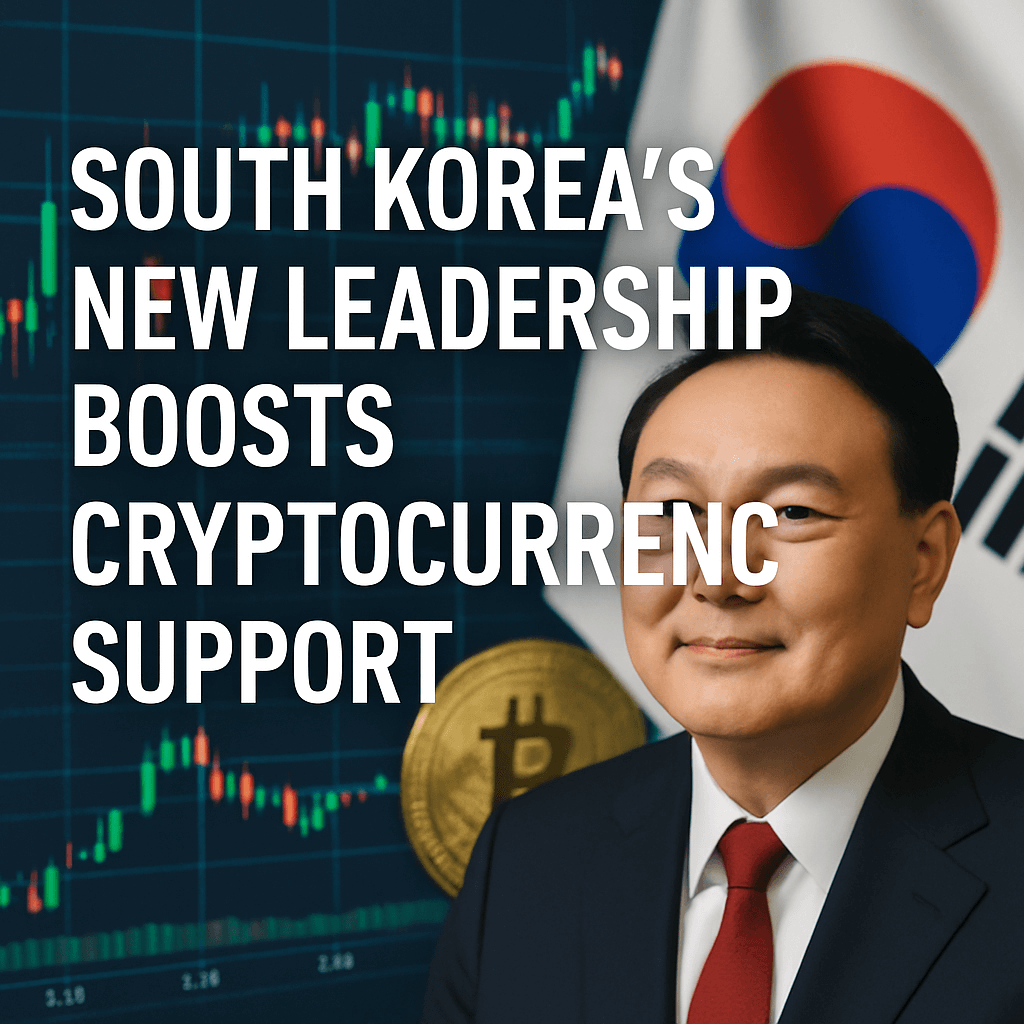South Korea’s New Leadership Boosts Cryptocurrency Support


President Lee Jae-myung has emerged as a significant proponent of cryptocurrency within one of the world’s most robust digital asset markets. Formerly a child laborer in South Korea’s post-war era, Lee’s journey to the presidency encapsulates the nation’s rapid modernization. His administration is widely anticipated to implement more favorable regulations around crypto, aiming to harness the technology’s transformative potential while safeguarding investors.
The Emergence of a Crypto-Friendly Regulatory Framework
Under Lee’s leadership, South Korea is expected to pivot towards a regulatory framework that encourages crypto investment and innovation. This shift is in stark contrast to previous administrations, which adopted a more cautious approach. To that end, the Financial Services Commission (FSC) is poised to review and possibly revise regulations concerning Initial Coin Offerings (ICOs) and the registration process for crypto exchanges.
Technical Improvements and Risk Management
Experts anticipate that an updated regulatory framework could include enhanced technical specifications for exchanges, including compliance measures such as know-your-customer (KYC) protocols and anti-money laundering (AML) safeguards. The FSC may also consider the establishment of a sandbox environment for crypto projects to test innovative ideas without the immediate burdens of extensive regulatory requirements.
Investor Protection Measures
To address the growing concerns of investor safety amid rising market volatility, Lee’s administration is likely to introduce clearer guidelines around consumer protections. This could include mandatory disclosures for crypto companies and enhanced measures for safeguarding client assets, possibly in alignment with international standards set by organizations like the Financial Action Task Force (FATF).
Scandals and Challenges Facing the Administration
Despite the forward momentum towards a crypto-friendly governance model, Lee’s administration is not without its challenges. Recent scandals, including alleged corruption and political machinations surrounding previous administrations, cast a shadow over the regulatory environment.
Understanding the Impact of Scandals
The background of ongoing investigations into former officials raises questions about the integrity of regulatory decisions moving forward. Some experts warn that if left unaddressed, these scandals could significantly undermine public trust in the government’s commitment to safeguarding both the cryptocurrency market and those investing within it.
The dynamics of these scandals amplify the need for transparency in both political and financial arenas in South Korea. A balance must be struck between fostering innovation and instilling a greater level of regulatory honesty on issues such as insider trading or conflicts of interest.
Global Perspectives and the Role of South Korea in Cryptocurrency
As one of the largest cryptocurrency markets, South Korea holds unique global significance, particularly in Asia. The proposed changes under President Lee may influence other nations’ attitudes towards digital assets, fueling a broader push for collaboration in international crypto regulations. Given the rise of decentralized finance (DeFi) and non-fungible tokens (NFTs), South Korea could serve as a bellwether for the global market’s evolution.
Expert Opinions
“A favorable regulatory environment might not only rekindle investment interest in South Korea but also position it as a leader in the global crypto landscape,” notes Jane Kim, a director at a South Korean fintech firm.
Investors and market analysts are closely monitoring these developments as South Korea’s future regulatory framework could have a ripple effect across the global crypto economy.
In conclusion, while President Lee Jae-myung is keen on positioning South Korea as a powerhouse in the digital asset space, the specter of political scandals looms large, necessitating vigilant oversight and proactive measures to ensure a secure investment climate for participants at all levels.